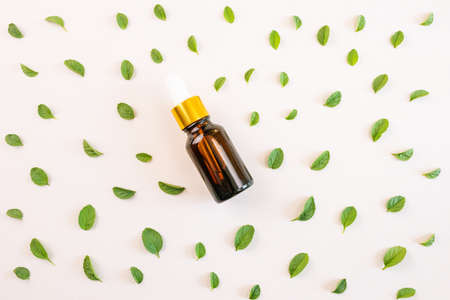What is Aromatherapy?
Aromatherapy is a holistic healing practice that uses natural plant extracts, primarily essential oils, to promote physical and emotional wellbeing. Its roots can be traced back thousands of years, with evidence of aromatic plant use in ancient Egyptian, Greek, and Roman civilisations. The modern term “aromatherapy” was first coined in the early 20th century by French chemist René-Maurice Gattefossé, who explored the therapeutic potential of essential oils. At its core, aromatherapy is based on the belief that certain scents can positively influence mind, body, and spirit. In the UK, aromatherapy is widely regarded as a complementary therapy rather than an alternative to conventional medicine. Many people seek it for relaxation, stress relief, and support with minor ailments. British practitioners often integrate aromatherapy into massage therapy or offer it as part of holistic wellness programmes. While scientific evidence supporting all its claims varies, aromatherapy remains a respected and popular choice for those looking to enhance their wellbeing naturally.
Popular Essential Oils and Their Uses
When it comes to aromatherapy in the UK, several essential oils have stood the test of time, both for their therapeutic properties and their cultural relevance. Understanding these oils, their characteristics, and how they are traditionally used across Britain can provide a practical starting point for anyone new to aromatherapy. Below is an overview of some of the most popular essential oils favoured in British households and wellness practices.
Essential Oils Commonly Used in the UK
| Essential Oil | Main Properties | Traditional British Uses |
|---|---|---|
| Lavender | Calming, soothing, antibacterial | Promoting relaxation, aiding sleep, freshening linen cupboards |
| Eucalyptus | Decongestant, antiseptic, invigorating | Relief from colds and coughs, added to steam bowls for inhalation during winter months |
| Peppermint | Cooling, energising, digestive support | Used for headache relief, revitalising tired feet after long walks, easing indigestion |
| Rosemary | Mental clarity, stimulating circulation | Enhancing concentration during study or work, incorporated into hair rinses for scalp health |
| Chamomile (Roman) | Sedative, anti-inflammatory, gentle | Soothing children at bedtime, relieving skin irritations such as nettle stings or insect bites |
The Significance of Local Traditions
Aromatherapy in Britain often blends modern science with folk traditions. For instance, lavender has been grown in English cottage gardens for centuries and is still a favourite for making homemade sachets or adding to bathwater. Eucalyptus oil remains popular during cold season due to its strong association with respiratory relief. Meanwhile, peppermint is a common feature in traditional British remedies for digestive complaints.
A Note on Responsible Use
While these essential oils are widely appreciated for their benefits, it’s important to use them safely: always dilute oils before applying to the skin and consult a qualified practitioner if you are pregnant or have underlying health conditions. This approach ensures that your introduction to aromatherapy is both enjoyable and mindful of best practices.

3. Methods of Application
When starting out with aromatherapy, understanding the safest and most popular ways to use essential oils at home is crucial. The right method can enhance your experience while ensuring that you benefit from the therapeutic properties without unnecessary risks. Below is an overview of accessible application methods commonly used across the UK.
Diffusers
One of the simplest and most effective ways to enjoy aromatherapy at home is through diffusers. These devices disperse essential oils into the air, allowing you to inhale their aromatic compounds. Ultrasonic diffusers are especially popular for their ability to humidify the air, making them ideal for British homes where dry air can be a concern during winter months. Always follow manufacturer instructions and avoid overusing oils to prevent overwhelming scents or irritation.
Baths
Adding a few drops of essential oil to your bath can provide a relaxing and restorative experience. Oils such as lavender or chamomile are favoured for winding down after a long day—a ritual many in the UK cherish. To ensure safety, always dilute essential oils with a carrier oil or dispersant before adding them to water. This prevents skin irritation and helps distribute the oil more evenly.
Massage
Aromatherapy massage combines the benefits of touch therapy with essential oils. For this method, essential oils must be diluted in a carrier oil—such as sweet almond or grapeseed oil—before being applied to the skin. This approach not only promotes relaxation but can also help soothe muscle tension, which is especially useful after a brisk walk in unpredictable British weather.
Safety Tips for Home Use
Regardless of the method, always perform a patch test if you are new to an oil, and consult professional guidance if you have underlying health conditions. Store oils away from direct sunlight and out of reach of children or pets. By following these guidelines, you can safely explore aromatherapy’s benefits within your own home environment.
4. Benefits and Safety Considerations
Aromatherapy is widely celebrated for its potential to enhance wellbeing, but understanding both the benefits and safety considerations is crucial—especially for beginners. In this section, we will explore the possible advantages of aromatherapy, clarify some common misconceptions, and outline key safety practices to ensure a positive experience.
Potential Health Benefits
Aromatherapy may offer several health-related benefits, many of which have been supported by anecdotal evidence and emerging scientific research. Some of the most frequently reported effects include:
| Benefit | Description |
|---|---|
| Stress Relief | Certain essential oils, such as lavender and chamomile, are often used to promote relaxation and reduce anxiety. |
| Improved Sleep | Scents like lavender and bergamot may help improve sleep quality by encouraging calmness. |
| Mood Enhancement | Citrus oils such as orange or lemon can uplift mood and boost mental energy. |
| Pain Management | Peppermint or eucalyptus oil may be used topically (with proper dilution) to ease muscle aches and tension. |
Common Misconceptions
- Aromatherapy is a Cure-All: While it can support wellbeing, aromatherapy should not replace medical treatment for serious conditions.
- Natural Means Safe: Not all natural substances are safe for everyone; allergic reactions or sensitivities can occur with essential oils.
- More is Better: Using excessive amounts of oil does not increase effectiveness and may cause adverse effects.
Key Safety Practices for Beginners
- Dilute Essential Oils: Always mix essential oils with a suitable carrier oil before applying to the skin to avoid irritation or burns.
- Patch Test: Before wider application, test diluted oil on a small area of skin to check for allergic reactions.
- Avoid Ingestion: Do not ingest essential oils unless under the supervision of a qualified professional; ingestion can be harmful or toxic.
- Mind Vulnerable Groups: Pregnant women, children, elderly individuals, and pets may be more sensitive to certain oils—consult a healthcare provider first.
Summary Table: Aromatherapy Dos and Donts
| Dos | Donts |
|---|---|
| Dilute oils properly Store oils out of reach of children Seek advice if unsure Use high-quality products |
Avoid direct skin application Do not ingest without guidance Don’t use near eyes or mucous membranes Don’t assume ‘natural’ means risk-free |
A Final Note on Safety
If in doubt, consult with a trained aromatherapist or healthcare professional before starting your journey with essential oils. Proper education and mindful practice are key to enjoying the benefits while minimising risks.
5. Sourcing and Quality in the UK
When starting out with aromatherapy, sourcing high-quality essential oils is absolutely vital. The British market has seen a growth in both online and brick-and-mortar retailers, but not all suppliers are created equal. For those looking to purchase oils locally, health food shops, specialist apothecaries, and reputable high street chains such as Neal’s Yard Remedies or Holland & Barrett are reliable options. Farmers’ markets and independent boutiques can also be good sources, but it’s important to ask questions about origin and production methods.
Understanding Quality Standards
Look for oils labelled as “100% pure essential oil” and check for clear information regarding botanical name, country of origin, and extraction method. Reputable British suppliers will often provide batch numbers and offer certificates of analysis or GC/MS reports upon request. Avoid products simply labelled as “fragrance oil” or “perfume oil”, as these are usually synthetic and unsuitable for therapeutic use.
Recognising Trusted Suppliers
Within the UK, trusted brands such as Tisserand, Absolute Aromas, and Amphora Aromatics have established reputations for quality and transparency. Buying directly from these brands’ official websites or certified local stockists ensures product authenticity. It’s worth noting that smaller artisan distillers can also offer excellent oils—just ensure they provide details about their sourcing and distillation processes.
Practical Tips for Beginners
As a beginner, start by purchasing smaller quantities from a few well-regarded sources to compare quality. Be wary of unusually low prices or vague labelling—these can be red flags for adulteration. Finally, store your oils in cool, dark places in their original dark glass bottles to maintain potency. By supporting reputable British suppliers, you not only ensure safety and effectiveness but also help sustain ethical production practices within the UK aromatherapy community.
6. Getting Started: Practical Tips for Beginners
If you’re just beginning your aromatherapy journey in the UK, it’s important to approach things step by step. Here are some practical tips to help you get started safely and enjoyably:
Start Simple with Essential Oils
Begin by selecting a few versatile essential oils such as lavender, tea tree, or eucalyptus. These are widely available in UK shops and online, and they cover a range of common needs from relaxation to cleansing. Always opt for reputable suppliers that provide clear information about sourcing and purity.
Learn Basic Methods of Use
The easiest way to experience aromatherapy is through diffusion. Consider a ceramic burner or an electric diffuser, which are both popular and safe choices in British homes. For personal use, try adding a drop or two of oil to a bowl of hot water for inhalation—especially helpful during cold weather.
Patch Test for Safety
Before applying any essential oil on your skin, always do a patch test. Mix one drop with a teaspoon of carrier oil (like sweet almond or grapeseed) and apply to a small area on your inner arm. Wait 24 hours to ensure there’s no irritation.
Be Mindful of Local Guidelines
The UK has strict regulations regarding the sale and marketing of essential oils. Familiarise yourself with advice from the NHS or local pharmacists, especially if you have allergies, asthma, or other health concerns.
Create Your Own Rituals
Aromatherapy can easily fit into daily routines—try adding a few drops of calming oil to your bath after a long day, or refresh your space with uplifting citrus scents while you work from home. Remember, less is often more; start small and see how your body responds.
Join Community Resources
Look for local workshops or online forums where enthusiasts across the UK share experiences and recipes. Libraries may also have books on aromatherapy tailored for British readers. Connecting with others can make learning safer and more enjoyable.
By taking these simple steps and building your knowledge gradually, you’ll soon find aromatherapy becoming a rewarding part of your wellbeing routine here in the UK.


